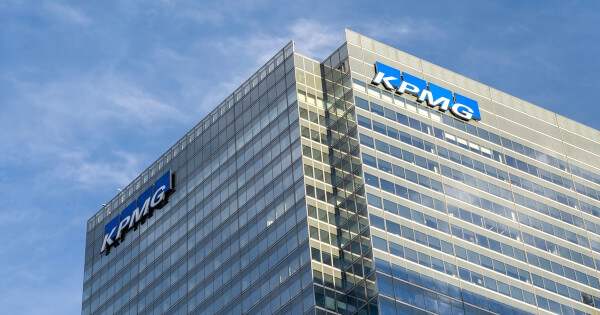Consulting Giant KPMG Gets into Metaverse Business
Nicholas Otieno Jun 23, 2022 02:15
KPMG has become the latest major corporation looking into the niche world of the metaverse, with the firm reporting a surge in interest. The move is an attempt by the firm to offer a more immersive experience to its millions of users across the globe.

KPMG, one of the Big Four accounting firms, announced on Wednesday that it is entering into the metaverse landscape by establishing its first collaboration hub between its U.S. and Canadian units.

The hub, which KPMG U.S. and Canada intend to launch, is designed to enable the company’s employees, customers, and communities to connect, engage, and explore opportunities for growth across sectors and industries.
Cliff Justice, KPMG US’ leader of enterprise innovation, talked about the development: “The way we look at it, it's not just augmented reality and virtual reality. It's really the next iteration of the internet. It really encompasses everything that the internet would encompass, but it's more interactive.” The executive stated that the metaverse is a market opportunity that re-engages talent and connects people across the world through a new collaborative experience.
The “hub” will be majorly centred around education, collaboration, training, events, and workshops. Justice said the firm plans to recruit staff to build and scale the hub more as time goes on. The company has long-term plans as it is looking at healthcare, consumer and retail, media and financial services as other potential use cases of metaverse, Justice pointed out.
The announcement also indicated that KPMG U.S. and Canada subsidiaries have started using Chain Fusion, a proprietary tool that assists in offering audit services for financial services, fintech and crypto-native firms.
The metaverse launch is not the first time KPMG has stepped into the world of internet iteration. In February, KPMG Canada directly invested in Bitcoin and Ethereum as part of its balance and bought digital art from the highly acclaimed World of Women (WoW) non-fungible token (NFT) collection.
During that time, the Canadian arm of the accounting giant stated the investment reflected the company’s belief that institutional adoption of crypto assets and blockchain technology would continue growing and become a regular part of the asset mix.
Metaverse For Business
Metaverse is emerging as the hottest buzz in the global tech market. Firms developing Metaverse are aiming to build new innovations and features that enable users to interact with each other effectively and efficiently in the digital world.
The Metaverse era represents an interplay among many factors including the use of internet services, augmented reality (VR), and virtual reality (AR). The metaverse uses augmented reality and virtual reality in a mixture with blockchain and artificial intelligence to create correct and scalable virtual worlds.
Companies across industries and sectors have already been seeking to incorporate metaverse components (such as extended reality headsets, blockchain and non-fungible tokens (NFTs), IoT and cloud technologies) into their business model as a means of connection and new sources of revenue.
Firms (such as Meta Inc., Nvidia, Epic Games, Microsoft, Apple, Decentraland, Roblox Corporation, Snapchat, Amazon, and others) embracing metaverse are at the forefront of transforming the digital world with immersive experiences in the future.
These firms are moving to use metaverse to develop immersive entertainment experiences for their customers, improve business operations, enhance customer experience, training and education experiences and work meetings, tap advertising, branding and marketing opportunities, and explore digital locations (such as digital representations of real estates).
Image source: Shutterstock.jpg)
